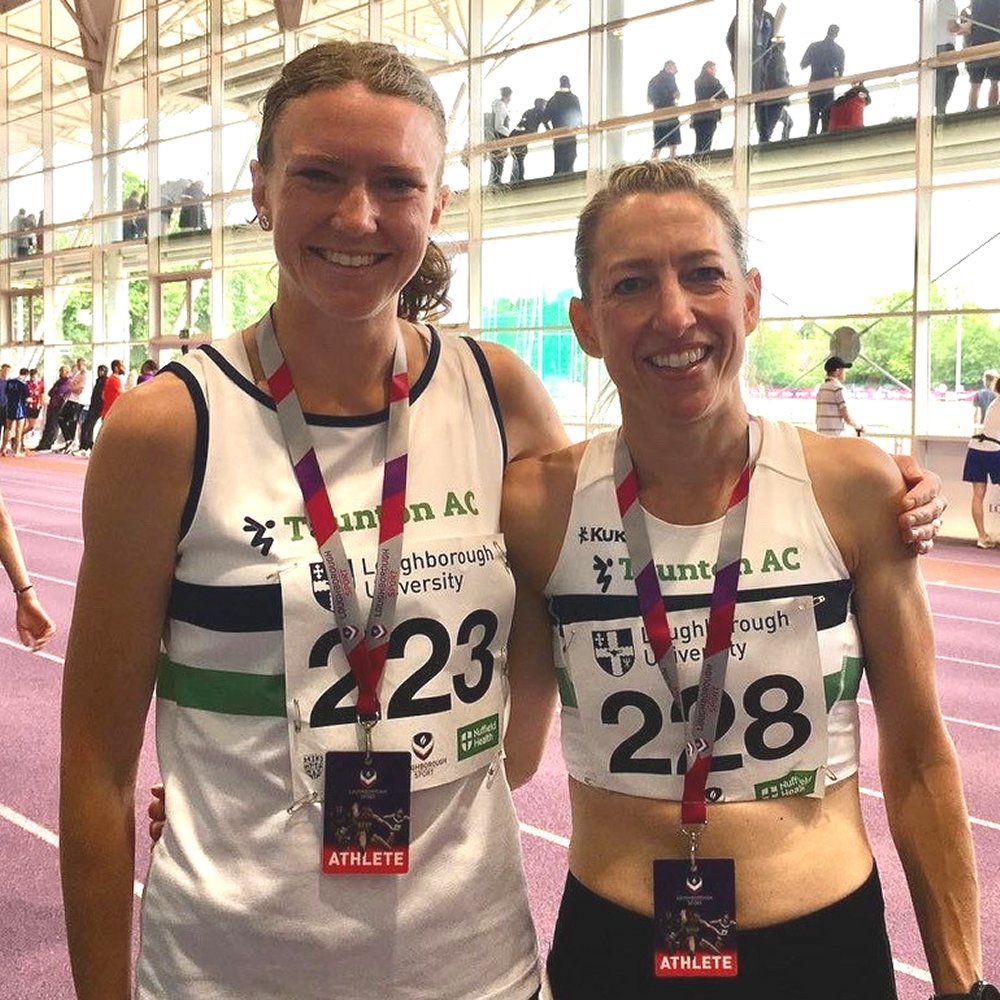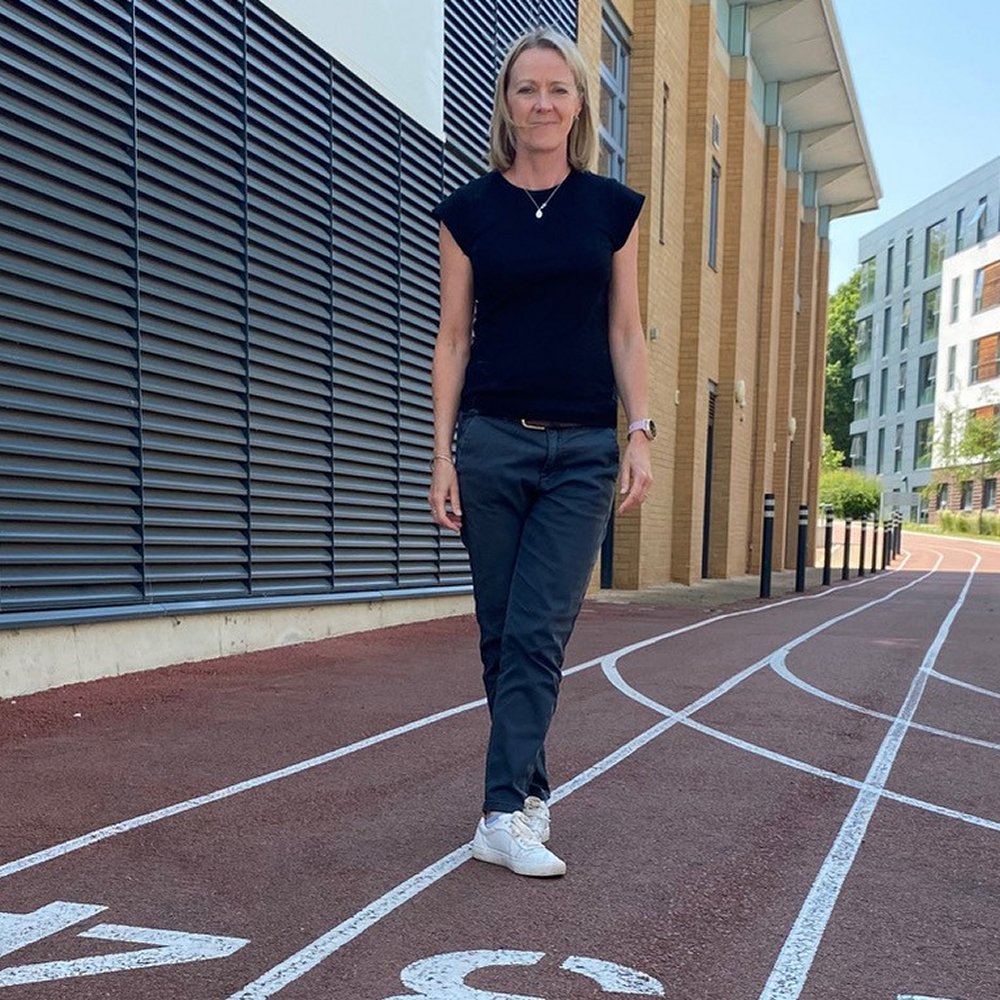Charlotte Fisher's coaching journey
“Just give it a go! Learn as much as you can, but don’t be afraid to make mistakes”: Charlotte Fisher speaks to England Athletics about her successful coaching journey spanning 30 years.
Hooked on athletics as a child, Charlotte Fisher has seen her love for the sport blossom into a successful coaching career spanning more than three decades. For her, coaching was a natural extension of being a promising athlete who competed at club and university level.
She took her first coaching qualification in her early twenties, a decision she happily explains was born largely out of selfishness.
“As a frustrated 400m hurdler without a coach at the time I thought it might help me to understand the process of getting better,” she said.
“Around that same time, I then found myself in a great little squad with an excellent coach at Lincoln Wellington. And so, when I started my first proper job as a teacher, I quickly found myself getting involved in coaching after-school athletics.”
With a natural curiosity as a lifelong learner, Charlotte remained interested in knowing more, progressing through the coaching qualifications, and getting involved in various coach development programmes. She’s keen to point out how she’s been fortunate to have had some great mentors and people who have encouraged her along the way.
 It's a journey that has seen Charlotte enjoy many highlights over the years, including playing an instrumental part in the career of Paralympian Hannah Taunton who won 1500m T20 bronze for Great Britain at the 2020 Tokyo Games.
It's a journey that has seen Charlotte enjoy many highlights over the years, including playing an instrumental part in the career of Paralympian Hannah Taunton who won 1500m T20 bronze for Great Britain at the 2020 Tokyo Games.
Though for Charlotte, as much as she enjoys magical moments like that, she finds it almost impossible to pick one particular highlight from an already impressive CV.
“I guess it’s the accumulation of great memories that keeps me interested,” she said.
“It’s not so much about a single performance, but more about the moments in between, the journeys in getting there, the ups and downs along the way, and then seeing how much those achievements mean to those athletes when everything does come together.
“Just seeing athletes achieve things they didn’t think possible a year or two previously is what inspires. And how those achievements translate and embolden people into other areas of their lives too.”
Charlotte is currently bringing her extensive coaching knowledge and expertise to Taunton AC where she’s working with adult endurance runners as a volunteer.
Her current squad of eight to 12 club athletes has a range of ages from 20 to 45 years, mixing track, road running, and cross-country. As well as featuring Paralympian Hannah, the group also includes steeplechasers Alice Murray-Gourlay, England Champion and 2023 British Championship silver medallist, and Kirstie Booth, F45 Masters world record holder.
“We’ve tried to create an athlete-centered approach within a supportive, but performance focused squad setting,” explains Charlotte. “It’s a mixed group that includes 800m runners to more road-focused athletes.”
When it comes to managing the highs and lows of a sport where there is often no hiding place for an athlete, Charlotte’s words of advice are relevant at whatever level an individual is at.
“I don’t think you can rush success,” she said. “‘Hurry slowly’ was a phrase an influential mentor frequently said. You have to be patient as a coach and to help the athlete learn to be patient also. Of course, there are key windows of opportunity for development which you want to try and seize, but if someone isn’t ready for whatever reason, then regardless of what the science advocates, you might have to be creative and find another way. Each athlete is different, and I can really only speak from the experience of those individuals I have worked with.”
 “The highs are the easy bits of coaching, managing the lows is when you get tested most as a coach. Injuries, illness, setbacks, and disappointments. Managing expectations is a key thing for me. Helping athletes to set ambitious, but realistic goals, and having a mix of goals, which are both process and outcome orientated and aren’t always about times or positions.”
“The highs are the easy bits of coaching, managing the lows is when you get tested most as a coach. Injuries, illness, setbacks, and disappointments. Managing expectations is a key thing for me. Helping athletes to set ambitious, but realistic goals, and having a mix of goals, which are both process and outcome orientated and aren’t always about times or positions.”
When it comes to adapting her approach to training athletes with differing abilities, Charlotte believes that fundamentally it’s about the athlete-coach relationship.
“It’s really just a case of finding out what the individual needs to perform at their best and then working together to address that,” she explains.
“For a T20 athlete, the adaption is often around finding ways to communicating some of the more nuanced training information, paces, or race tactics. Helping to build confidence in handling sudden changes to competition or holding camps is another area we work on, often simply by allowing those things to play out in training or in smaller competitions.”
When speaking with a coach like Charlotte who has enjoyed much success over many years, the burning question is often ‘what advice would you have for any aspiring coaches?’
“Just give it a go! Learn as much as you can, but don’t be afraid to make mistakes and to learn together with the athletes you coach,” she said.
“Over time you’ll evolve a philosophy as to why you coach and what matters most to you and that will inform your style of coaching.”
“I had no idea I’d still be coaching thirty years on from taking my first qualification. The friendships and bonds you develop through coaching are what make the journey. Hearing from ex-athletes who have long since moved on from the club yet remember how the sport shaped them as people is really rewarding. It’s rarely a particular performance they will recount, but rather something you said or did, or some funny incident.”
“One athlete likes to good humoredly remind me that I always seemed to pop out from behind a tree or hedge at the furthest most part of a cross-country course, just when the going was getting tough,” she joked.